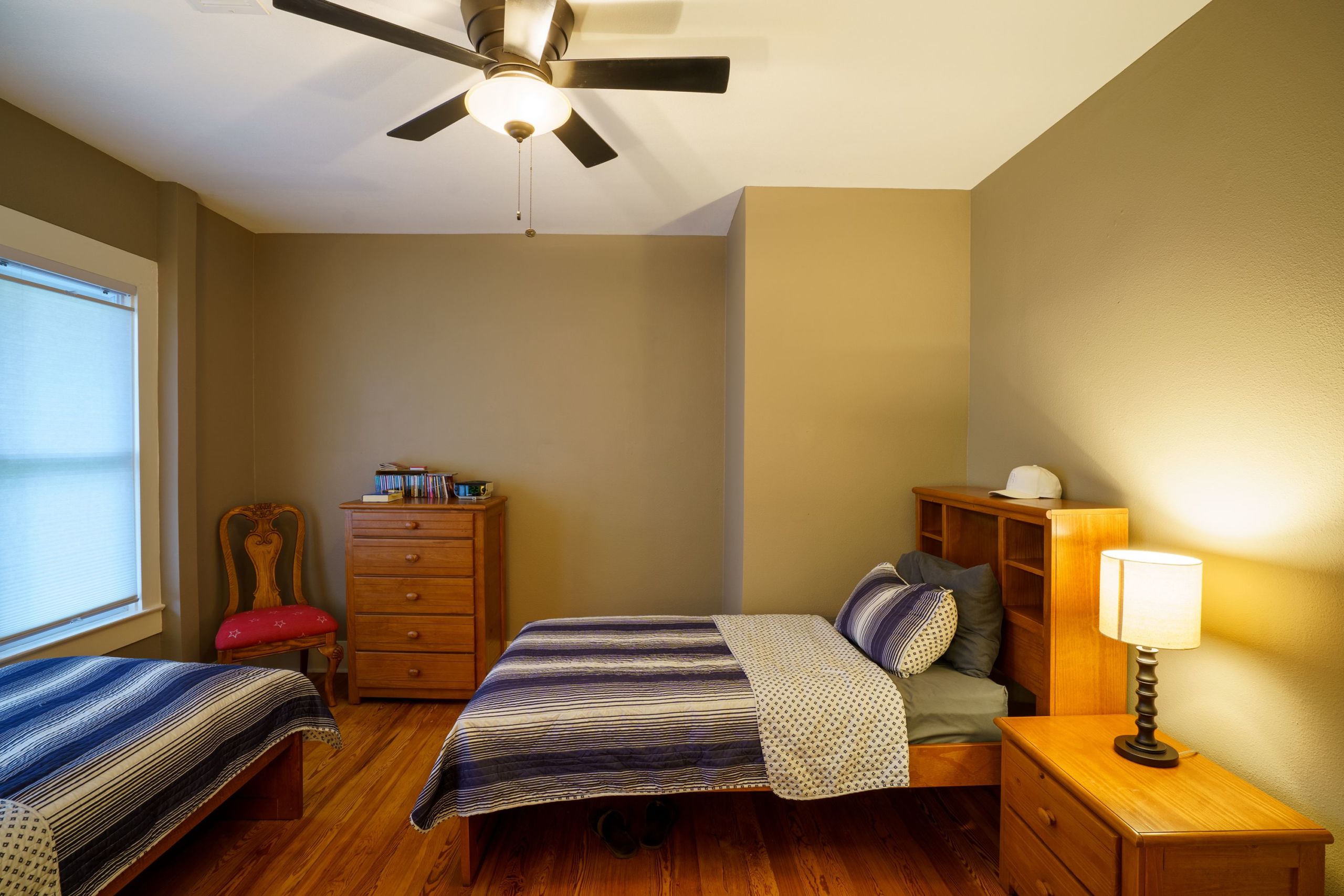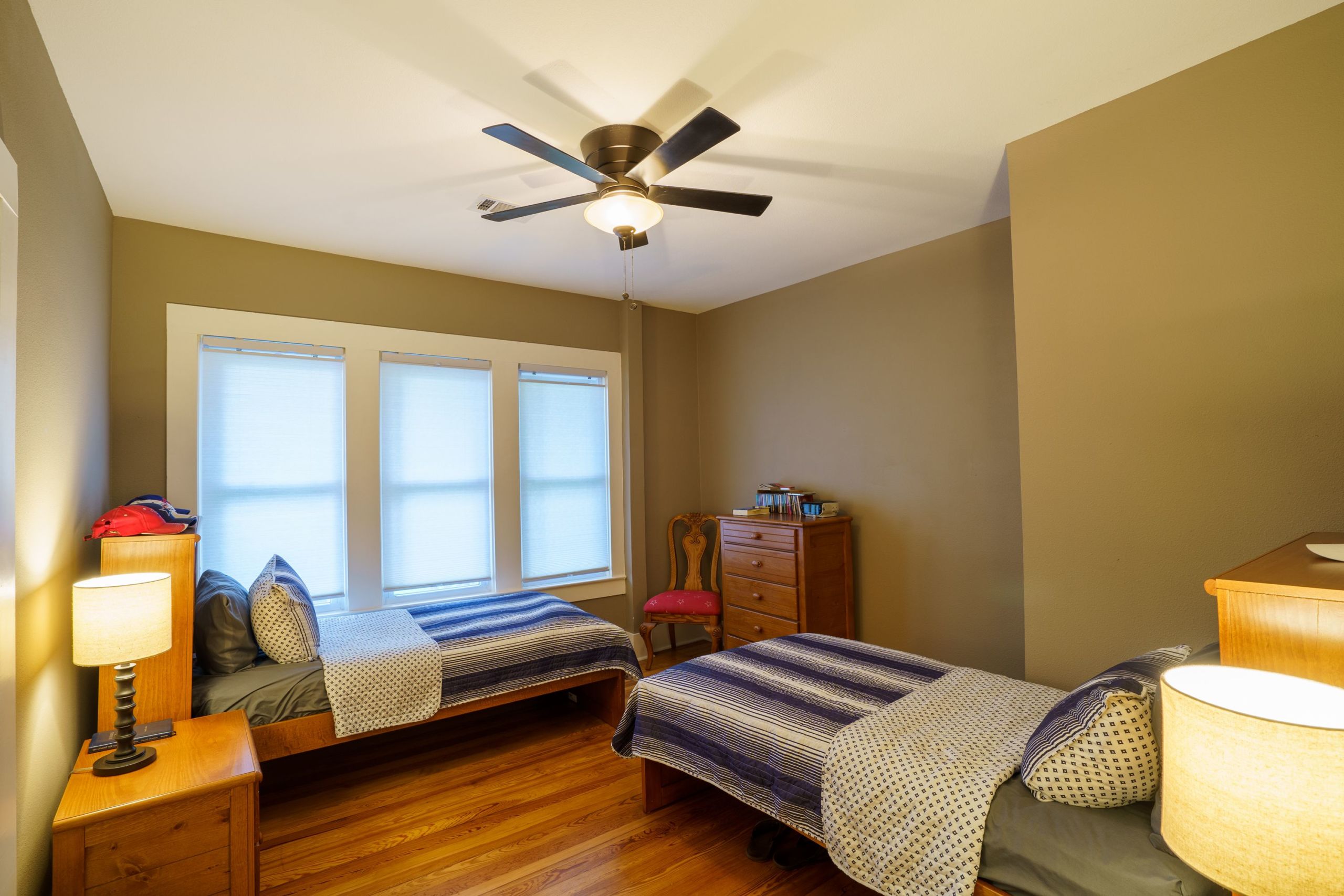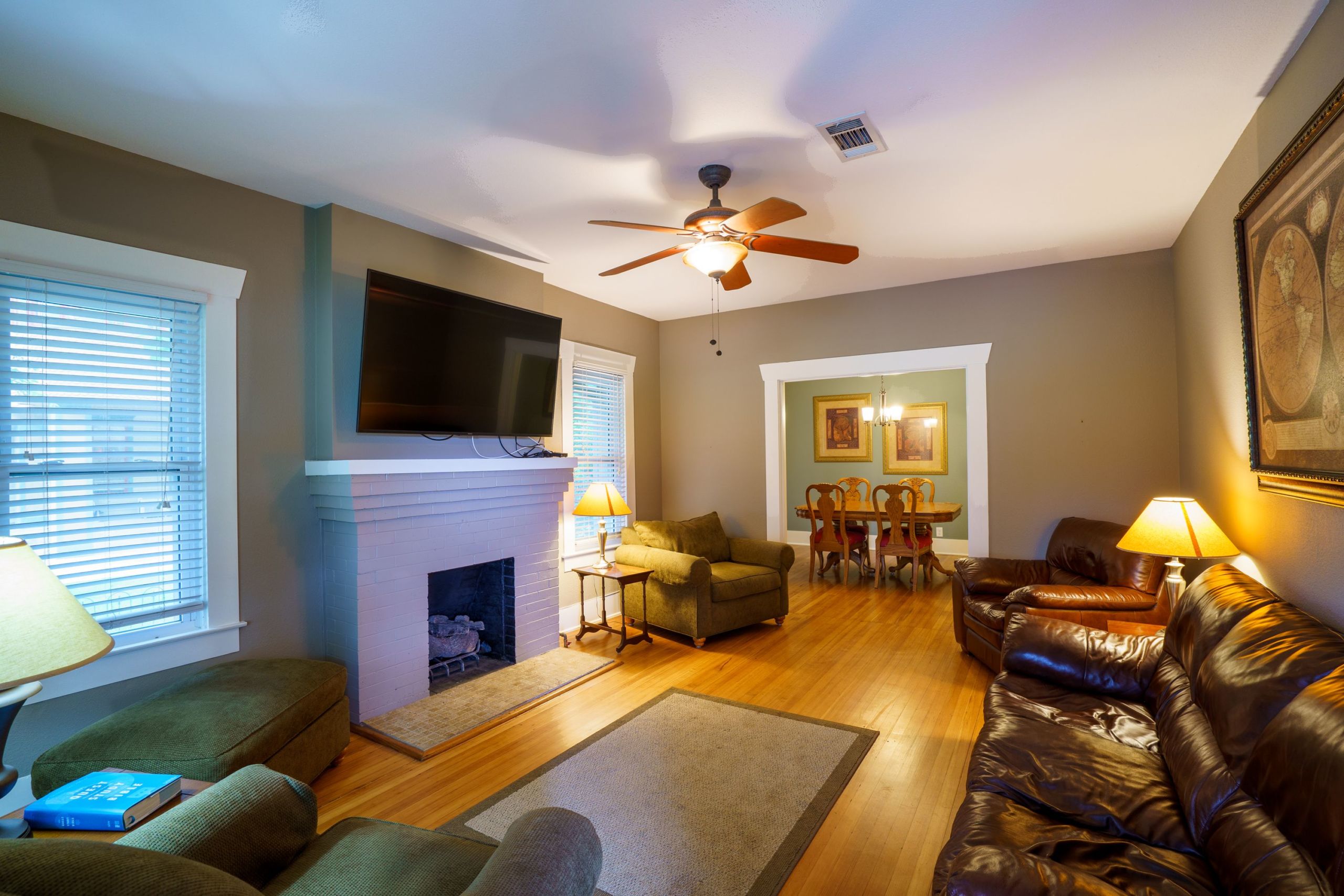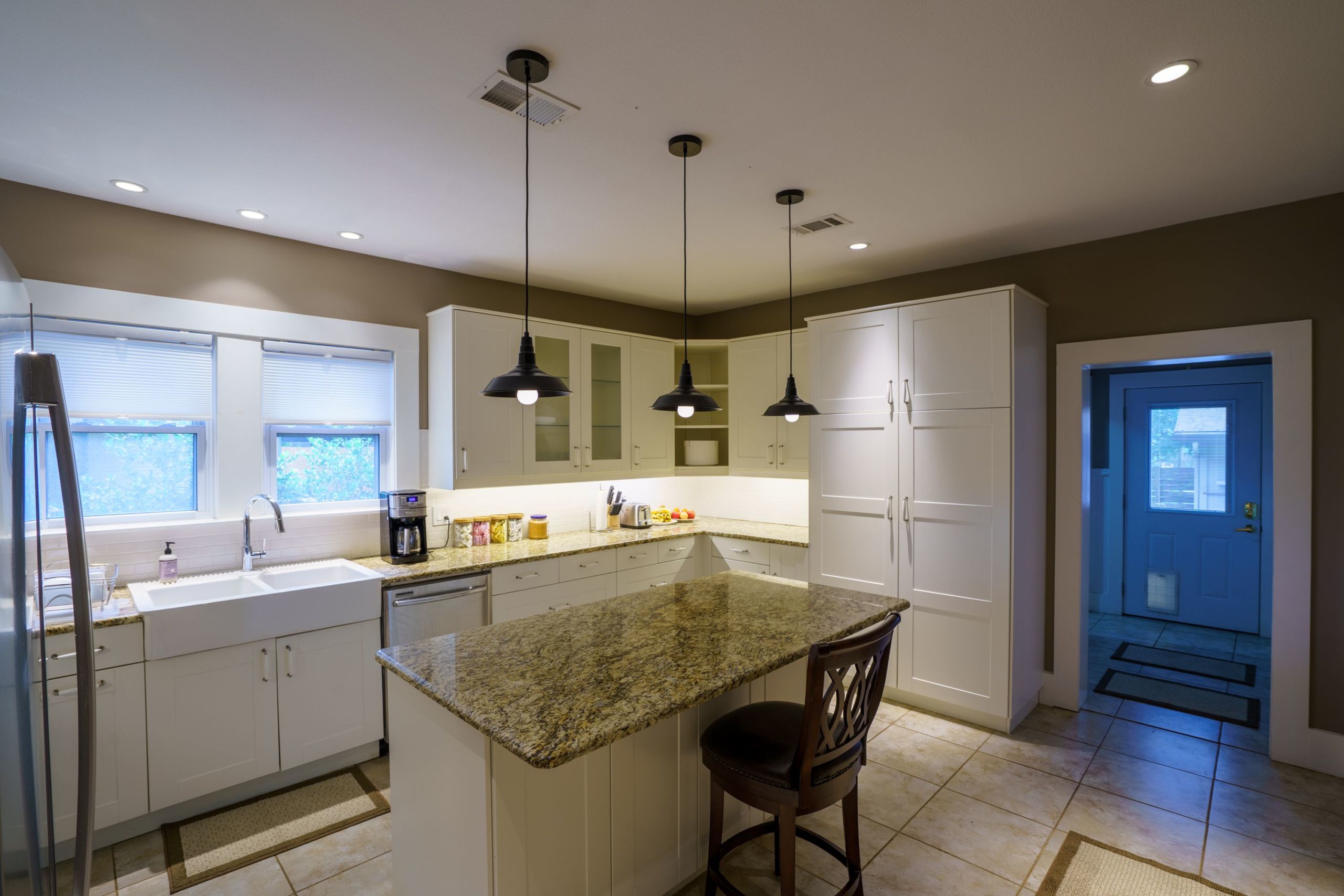The Cottage is a program that combines OP programming at Alta Loma and supportive living at Casa Sana.
At Alta Loma, we guide you every step of the way through a customized mental health plan and transformational recovery from substance abuse. Our services start with partial hospitalization programming (PHP) and supportive housing at The Ranch, then move to extended care at The Villa and outpatient programming (OP) here at The Cottage. The continuum of care we provide helps residents gain increasing independence as they work through the recovery steps of our programs alongside case managers, behavior analysts, nurses, therapists and mentors.
What to Expect
While staying at The Cottage, you’ll be in a less restrictive environment that continues your treatment while allowing you to be fully engaged in work or school. Additionally, you’ll still receive counseling, along with one process group and one life skills group per week. Peer support groups such as NAMI or other 12-step programs are also a part of life at The Cottage to help you in your commitment to remain sober.
Men who stay at The Cottage must:
- Complete Alta Loma’s primary care program at The Ranch
- Feel mentally stable and have their mental health symptoms under control
- Feel ready to transition back into daily life and pursue new vocational goals
- Maintain a commitment to sobriety and healing
Located near The Villa, The Cottage is a single-story home with three bedrooms and two bathrooms. Supported by a 24-hour staff, residents at The Cottage are provided meal service seven days a week, access to the local recreational center and local transportation within Georgetown. It’s the perfect opportunity to continue your recovery journey by beginning to rebuild your outside connections and future goals.
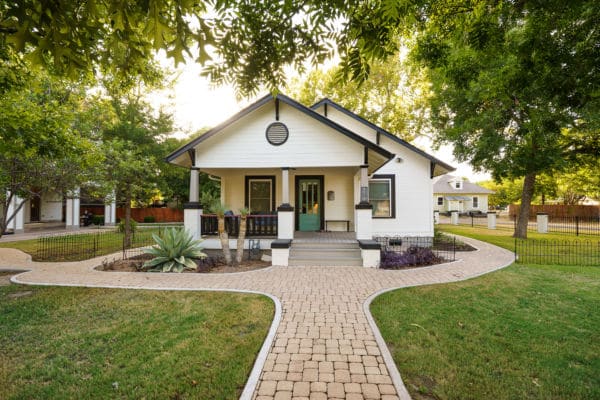
Types of Mental Health Programming Offered at The Cottage
Life Skills Groups
Substance abuse can create a lot of chaos in people’s lives, destroying everything from their health to their relationships and careers. During the process of recovering from substance abuse, you can gain a lot of insight from life skills groups and collective therapy that focuses on ways to help you rebuild a stronger foundation as an individual and as part of a group.
These types of group sessions provide an opportunity to help you rebuild your confidence and start to realign your life’s purpose and goals. You’ll also learn how to address daily triggers that often lead to stress, anxiety and a tendency to abuse substances as an escape. Life skills groups will discuss actionable ways to rebuild important things that were lost during active addiction, including your health, finances, relationships and emotional regulation.
If you suffer from a mental disorder alongside addiction, a life skills group will teach you how to navigate challenges through healthier approaches. You’ll learn how others in your group struggle with the same mental health issues and have made similar choices with poor outcomes.
At Alta Loma, our life skills groups are designed to give you the coping skills you’ll need to live a successful, healthy, addiction-free life after returning home. These important sessions will also provide participants with an opportunity to learn new ways of working alongside others, building a recovery network in the process.
Some of the steps that’ll be discussed are:
- Building healthy new relationships and rebuilding old ones
- Budgeting to rebuild credit and financial stability
- Maintaining household responsibilities for a calmer mind and a clean, decluttered living space
- Regulating emotion when negative situations arise and managing daily life stressors
- Healthy coping mechanisms to replace unhealthy substance abuse
- Recognizing triggers and learning how to work through them if they can’t be avoided
- Job skills and career development


Process Groups
Process groups provide an opportunity for individuals to open up about the trauma, mental health issues or circumstances that led them down the path of addiction. While doing this in a small group, they’re able to tell their story in a safe space with the guided support of a therapist or counselor.
This type of therapy helps in two distinct ways. First, it encourages you to discover the power of speaking your truth to others without the fear of being judged. This might sound simple, but it’s a powerful process to help you come to terms with the choices you made and why you made them. When there are people around you who have been through a similar experience and share their stories, there’s more freedom to admit to your personal struggles without feeling ashamed.
Second, although recovery is never easy, hearing about the struggles other people have faced with substance abuse and mental health disorders helps you realize you’re not alone. Often, it’s loneliness that makes someone turn to illegal drugs and alcohol in the first place, since these substances can make you feel more confident and sociable. Knowing that others have felt that same way is a great help when learning to address triggers and build a more solid sense of self throughout the recovery process.
Psychoeducational Classes
Process groups also include psychoeducational programming that teaches individuals about how their brain works and how it played a role in their addiction. In these classes, you’ll learn the ways past trauma can alter your brain, creating a desire to find escape through substance abuse and other unhealthy patterns.
This type of recovery work is an important step to help you forgive yourself and recognize that your addiction wasn’t your fault. Although your choices to use might have led to negative consequences, there were psychological triggers that put you in an at-risk category for substance use disorder and poor mental health. Understanding that is half the battle toward achieving full recovery.
These classes also discuss healthier alternatives that provide your brain with the chemicals it needs for your happiness and well-being. Through medication management, a healthy diet and paying attention to your body’s signals, you can learn how to feel better than you ever felt — even before you were in active addiction.

About the Facility
Alta Loma provides luxury addiction and mental health services in a beautiful, pristine setting spanning 20 acres near Austin, Texas. With four buildings offering different levels of state-of-the-art care and residential living arrangements, it provides comprehensive transformational services to people struggling with psychiatric and substance abuse issues. Reach out today to speak to our amazing team and learn how we can help you or a loved one.
With the main building featuring a comfortable cafeteria and modern gym, Alta Loma’s residents have opportunities to enjoy nutritious meals created by an on-site nutritionist to help restore their minds and bodies. The main residential house is nearby and includes five bedrooms and five bathrooms, with space for up to nine men. Each of the two other houses located on the property can hold up to six men within five bedrooms and five bathrooms.
The staff at Alta Loma combines cognitive behavioral therapy, medication management, mentoring, medical support and a wide range of activities to help you keep your mind engaged and inspired to maintain your sobriety goals.
Additional amenities include:
- Large swimming pool
- Stocked fishing pond
- Half-mile fitness trail
- Basketball court
- Several shaded outdoor seating areas for relaxation and conversation
- Outdoor field shared by miniature donkeys and goats
- Around-the-clock supervision from our experienced recovery specialists
